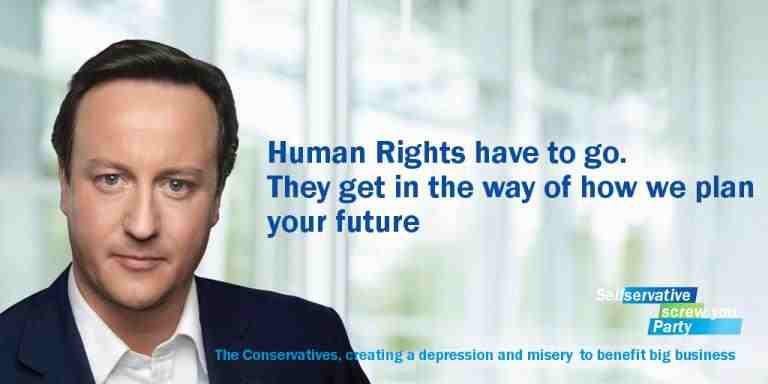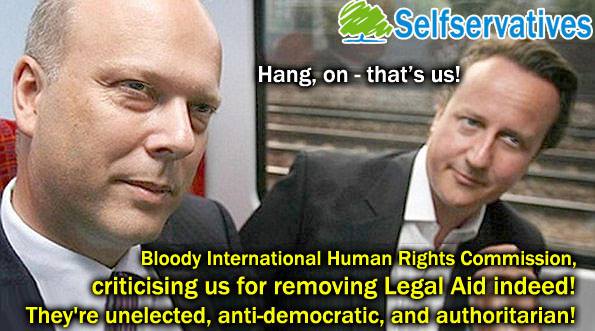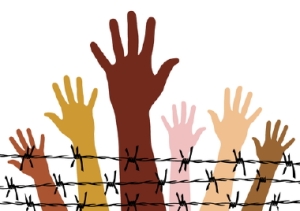“I call on States to honour their obligation to protect human rights every day of the year. I call on people to hold their governments to account.”
UN Secretary-General Ban Ki-moon.
The UN General Assembly proclaimed 10 December as Human Rights Day in 1950, to bring to the attention ‘of the peoples of the world’ the Universal Declaration of Human Rights as the common standard of achievement for all peoples and all nations.
This year’s slogan, Human Rights 365, encompasses the idea that every day is Human Rights Day. It celebrates the fundamental proposition in the Universal Declaration that each one of us, everywhere, at all times is entitled to the full range of human rights, that human rights belong equally to each of us and bind us together as a global community with the same ideals and values.
The Coalition’s legal aid reforms undermine the fundamental principle of legal equality and breach Article 6(1) of the European Convention of Human Rights: the right to a fair trial. They reflect a truly authoritarian agenda of legislative tyranny: the reforms effectively remove legal access for many, crucially that access ultimately safeguards individual liberty against intrusion by the State, and protects us from despotic abuses of authority.
UK Government in breach of the human rights convention on gender discrimination.
Welfare reforms break UN convention
Statement for 2014 of the High Commissioner for Human Rights
Zeid Ra’ad Al Hussein
“All human beings are born free and equal in dignity and rights”: in perhaps the most resonant and beautiful words of any international agreement, the Universal Declaration of Human Rights promises, to all, the economic, social, political, cultural and civil rights that underpin a life free from want and fear.
These human rights are not country-specific. They are not a reward for good behaviour, or particular to a certain era or social group. They are the inalienable entitlements of all people, at all times and everywhere, 365 days a year.
They are the rights of people of every colour, from every race and ethnic group; whether or not they have disabilities; citizens or migrants; no matter their sex, their class, their caste, their creed, their age or sexual orientation.
The commitments made to the people of the world through the Universal Declaration are in themselves a mighty achievement – discrediting the tyranny, discrimination and contempt for human beings that have so painfully marked human history. And since the Declaration was adopted, countless people have gained greater freedom.
Violations have been prevented. Independence and autonomy have been attained.Many people – though not all – have been able to secure freedom from torture, unjustified imprisonment, summary execution, enforced disappearance, persecution and unjust discrimination, as well as fair access to education, economic opportunities, rich cultural traditions and adequate resources and health-care.
They have obtained justice for wrongs, and national and international protection for their rights, through the strong architecture of the international human rights legal system.
The power of the Universal Declaration is the power of ideas to change the world. It tells us that human rights are essential and indivisible – 365 days a year. Every day is Human Rights day: a day on which we work to ensure that all people can gain equality, dignity and freedom.
The UN Human Rights Office stands with the millions of people around the world whose voices are denied.
And I look forward to you joining us, whether you do so via social media or in person. Together, we must demand what should be guaranteed: our human rights, universal, indivisible, inalienable, for everyone, 365 days a year.
David Cameron has pledged to leave the European Convention of Human Rights (ECHR) if he is elected next year, and he will repeal Labour’s Human Rights Act, which consolidates the Universal Declaration of Rights.
Human rights are the bedrock of democracy, when that UN charter was written, in the aftermath of the second world war, as an international response to atrocities inflicted by some States, such as the Holocaust, it set out the basic rights for citizens that all governments should respect and uphold.
The strong link between democracy and human rights is captured in article 21(3) of the Universal Declaration of Human Rights, which states:
- “The will of the people shall be the basis of the authority of government; this will shall be expressed in periodic and genuine elections which shall be by universal and equal suffrage and shall be held by secret vote or by equivalent free voting procedures.”
- The rights enshrined in the International Covenant on Economic, Social and Cultural Rights and subsequent human rights instruments covering group rights (e.g.indigenous peoples, minorities, people with disabilities) are equally essential for democracy as they ensure inclusivity for all groups, including equality and equity in respect of access to civil and political rights.
Labour’s Human Rights Act ought to be a source of pride. It is a civilised and a civilising law. It means that we can hold our government to account in UK courts, rather than needing to go to Strasbourg. It ensures that Britain remains a nation where key universal benchmarks of human decency and protections against State abuse are upheld by the courts.
Membership of the ECHR ought to be a source of pride, too. As well as providing a legal framework for basic decency and civilisation for member States, it also provides a crucial mechanism of international scrutiny that ensures governments are accountable for their actions towards citizens.
- The Coalition has, in just four years, contravened the human rights of disabled people, poor people, women and children.
We need to ask two important questions: What kind of government would treat the most vulnerable citizens – protected groups – with such little respect, dignity, care and esteem?
- And what kind of government would not wish to uphold basic standards of decency and civilised safeguards – the basic rights and protections of citizens from the actions of the State, within a legal framework of international standards for political accountability?
 The protection of freedom under the Human Rights Act: some illustrations
The protection of freedom under the Human Rights Act: some illustrations
Thanks to Robert Livingstone for his excellent memes.





Reblogged this on HAPLOGROUP – bit that makes us human..
LikeLike
Reblogged this on nearlydead.
LikeLike
Reblogged this on | truthaholics and commented:
Cameron’s capitalist coalition and the thin edge of the wedge.
LikeLike
Reblogged this on sdbast.
LikeLike
Reblogged this on seachranaidhe1.
LikeLike
Kok banyak yang reblog ya?
LikeLike